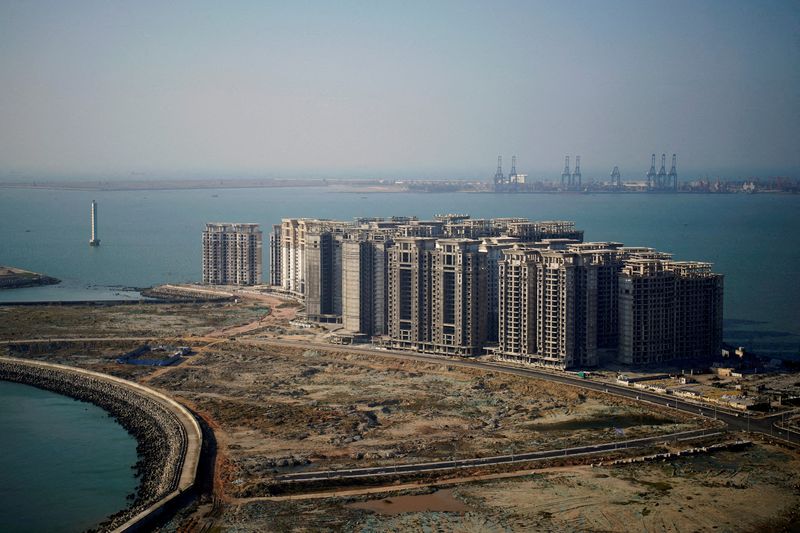By Leika Kihara
MARRAKECH, Morocco (Reuters) - Hiroshi Wanatabe, Japan's former top currency diplomat, recalls how Chinese policymakers eagerly studied ways to avert a Japan-style burst of an asset bubble that led to prolonged deflation and economic stagnation - until around 2015.
"Then they stopped. In the past seven to eight years, they seem to be ignoring everything they learned," said Watanabe, who retains close ties with incumbent policymakers. "Under the Xi administration, China probably shifted its attention away from economics," he told Reuters.
Now, China may be paying the price. Inflation is stalling and its deepening real estate crisis was identified as among the biggest risks to global growth during the International Monetary Fund and World Bank meeting being held in Marrakech Oct. 9-15.
The world's second-largest economy is in the spotlight as a country on the brink of "Japanization," a term describing Japan's 15-year period of low growth and deflation after the burst of an asset-inflated bubble in the late 1990s.
Some Japanese policymakers are voicing concern partly since a prolonged slump in Japan's biggest trading partner will deal a huge blow to their export-reliant economy.
"What's fast emerging is the risk of China slipping into deflation, or the 'Japanization' of its economy," Bank of Japan (BOJ) board member Asahi Noguchi said on Thursday.
"It's not clear yet whether China is heading toward a situation similar to Japan. But it's true China's real estate sector - the backbone of its economy - is slumping, youth job losses are rising and inflation is weakening," he said in Japan.
In its World Economic Outlook, the IMF cut China's growth forecast for this year to 5.0% from 5.2% in April, and warned that its property sector crisis could deepen with global spillovers. It projects growth to slow to 4.2% next year.
Data showed on Friday China's consumer inflation was flat in September, missing forecasts for a 0.2% gain, highlighting the deflationary pressure China faces even as many other countries combat too-high inflation.
Back during its deflationary period from 1998 to 2013, Japan saw core consumer prices fall 0.2% on average, as slumping property prices hit bank balance sheets and cooled investment.
To be sure, there are differences between what is happening in China and the experience of Japan. For one, China's balance sheet stress and debt overhang are contained to the real estate sector, notably among troubled developers and local provinces.
That contrasts with Japan, where slumping property prices left banks nationwide with a huge pile of bad loans, causing a broad-based credit crunch that prolonged the economic downturn.
For now, the IMF does not see a big risk of China sliding into deflation with inflation seen accelerating, backed by a recovery in demand, Krishna Srinivasan, director of the lender's Asia and Pacific Department, told a briefing on Friday.
But he urged Beijing to take measures, such as supporting the restructuring of distressed developers and offering guidance to local provinces, to avoid the troubles from broadening.

"Overall, we believe that China can avoid a prolonged period of sub-par growth with the right policies," Srinivasan said, when asked about the chance of "Japanization" in China.
"The point we're trying to make is that it's important to address the property crisis head on, so that it doesn't become a bigger problem."
